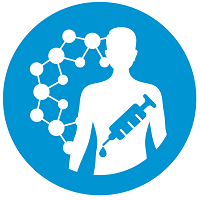Preclinical, Clinical, and Translational Sciences
Symposium: Translational Development of Cell and Gene Therapies
Quantitative Pharmacology of anti-CD19 Cell Therapies in Autoimmune conditions
Wednesday, November 12, 2025
10:00 AM - 10:30 AM CT
Location: 225 CD

Aman P. Singh, M.S., PhD
Group Director, Clinical Pharmacology and Pharmacometrics,
Johnson and Johnson Innovative Medicine
Medford, Massachusetts
Speaker(s)
Allogeneic cell therapies have emerged as promising interventions for autoimmune diseases such as systemic lupus erythematosus (SLE), multiple sclerosis (MS), and rheumatoid arthritis (RA). Unlike conventional immunosuppressants that provide only transient disease control, allogeneic CAR-T therapies aim to restore immunologic tolerance by rebooting dysregulated immune networks (ie, immune “reset” due to rapid and complete depletion of autoreactive lymphocytes followed by repletion of naïve lymphocytes), leading to durable remission. Cell Therapies may better achieve immune reset compared to mAbs due to ability to migrate into deep tissue compartments that are less accessible to antibodies, and because they directly kill target cells without the need to engage other elements of the immune system (eg, ADCC, CDC, or T-cell engagement).
Although allogeneic CAR-T cells have markedly less persistence compared to autologous, this may be less important in the context of an immune reset, where rapid and complete depletion or autoreactive lymphocytes may be sufficient. Therefore, autoimmune diseases may unlock the full potential of allogeneic therapies, including immediate availability, easier redosing and lower cost per infusion. However, clinical translation is complex due to novel mechanisms of action, unpredictable pharmacokinetics/pharmacodynamics (PK/PD), and safety considerations such as immunogenicity and cytokine release syndrome (CRS). Additionally, strategies to overcome host rejection continue to be an active of development.
This session will focus on clinical pharmacology strategies to understand, characterize, and optimize allogeneic cell therapies in autoimmune settings. Key topics will include a summary of current CAR-T and lymphodepletion (LD) dosing/regimens and cellular kinetic profiles in autoimmune disease. Additionally, the session will highlight opportunities to employ advanced analytics to identify and model the complex interplay among CAR-T product and patient factors that are predictive of cellular kinetics and clinical response (eg, lymphodepletion, CAR-T phenotypes, LD, pharmacodynamic biomarkers, biodistribution, etc.). Exploring these emerging themes through a multidisciplinary lens will provide a much-needed framework for the development of next-generation cell therapies in autoimmune disease.
Although allogeneic CAR-T cells have markedly less persistence compared to autologous, this may be less important in the context of an immune reset, where rapid and complete depletion or autoreactive lymphocytes may be sufficient. Therefore, autoimmune diseases may unlock the full potential of allogeneic therapies, including immediate availability, easier redosing and lower cost per infusion. However, clinical translation is complex due to novel mechanisms of action, unpredictable pharmacokinetics/pharmacodynamics (PK/PD), and safety considerations such as immunogenicity and cytokine release syndrome (CRS). Additionally, strategies to overcome host rejection continue to be an active of development.
This session will focus on clinical pharmacology strategies to understand, characterize, and optimize allogeneic cell therapies in autoimmune settings. Key topics will include a summary of current CAR-T and lymphodepletion (LD) dosing/regimens and cellular kinetic profiles in autoimmune disease. Additionally, the session will highlight opportunities to employ advanced analytics to identify and model the complex interplay among CAR-T product and patient factors that are predictive of cellular kinetics and clinical response (eg, lymphodepletion, CAR-T phenotypes, LD, pharmacodynamic biomarkers, biodistribution, etc.). Exploring these emerging themes through a multidisciplinary lens will provide a much-needed framework for the development of next-generation cell therapies in autoimmune disease.
Learning Objectives:
- Learn clin pharm strategies and advanced analytics for identifying, evaluating, and interpreting key drivers of cellular kinetics for allogeneic therapies in autoimmune diseases
- Understand challenges in evaluating and interpreting cellular kinetics/pharmacodynamics for allogeneic cell therapies in autoimmune diseases.
- Explore model-informed drug development (MIDD) strategies for characterizing cellular kinetics and pharmacodynamic response, and for optimizing lymphodepletion.

